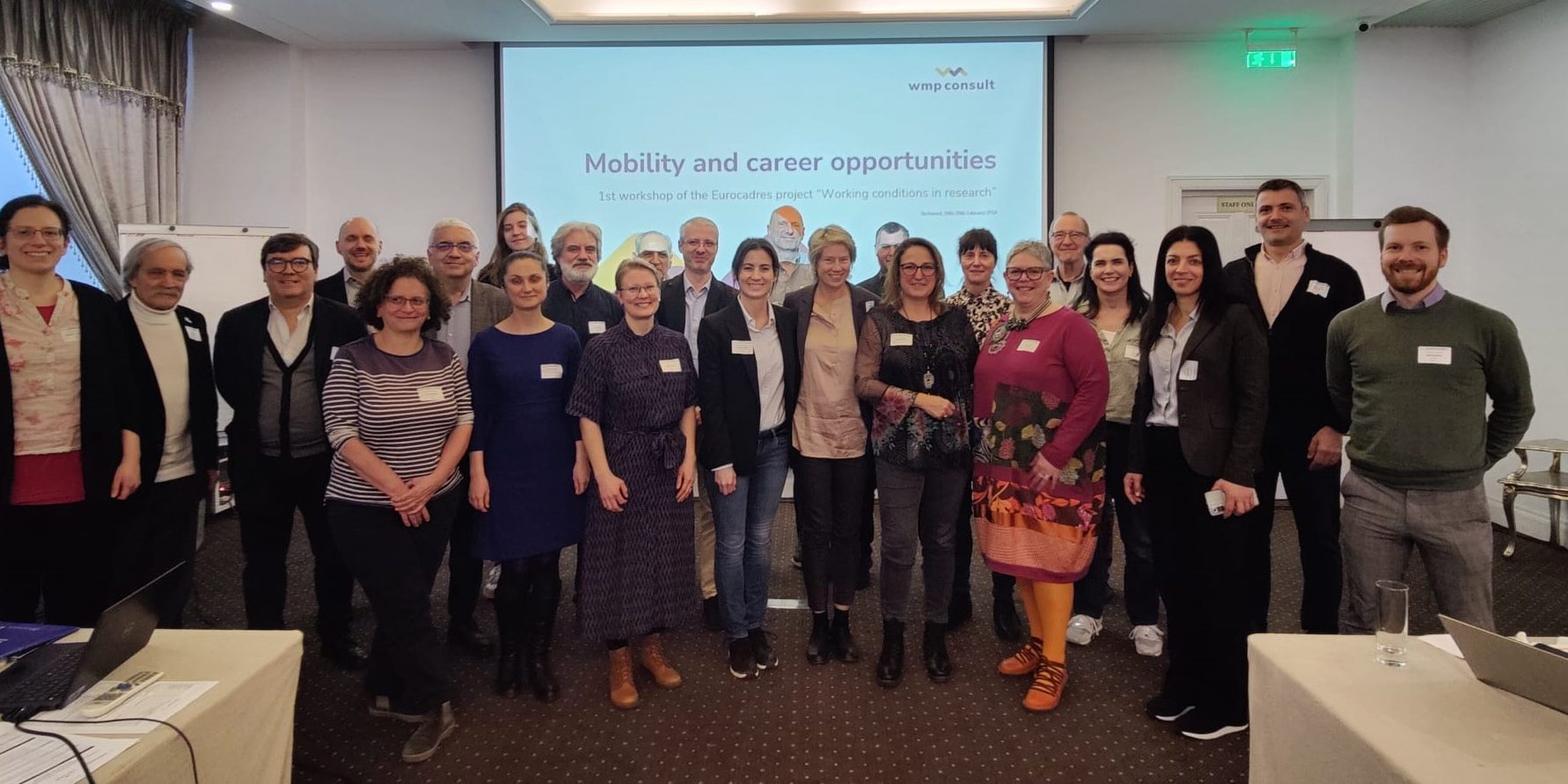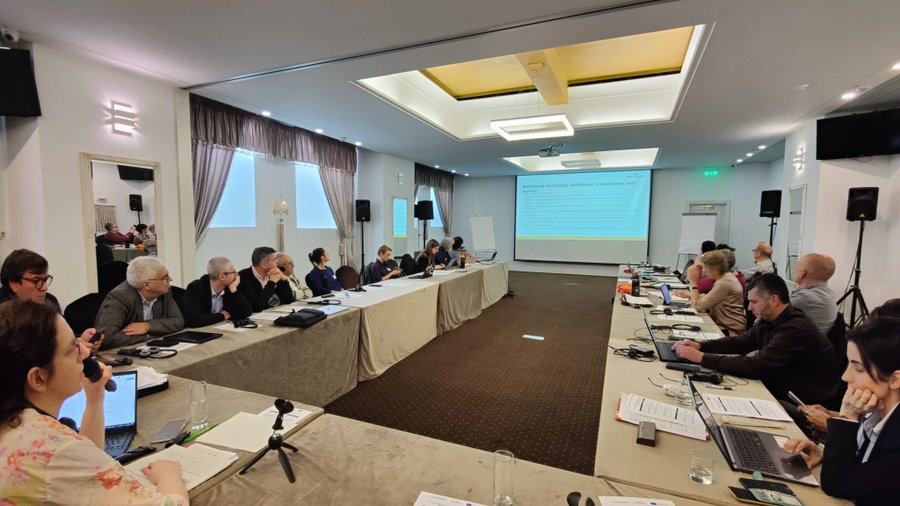
Researchers project heads to Romania

Last week, European researchers and trade union representatives travelled to Bucharest to take part in the first workshop of our project on working conditions in research, with “Mobility and career opportunities” being the main area of focus. With contributions from our consultant colleagues from WMP, our participants, mainly researchers themselves, took part in interactive sessions, sandwiched between best practice examples from a European and national perspective.
The project, a longstanding demand of Eurocadres members, is centered on the need to provide knowledge on European policies relating to researchers, including the European Research Area, the European Charter for Researchers and the Code of Conduct for the Recruitment of Researchers. In examining the provisions workers have in these texts (and their impact on working conditions), our aims over the course of this project are to:
- Raise awareness of working and employment conditions of researchers in Europe
- Identify national and European trade union policies and activities advancing the needs of researchers in Europe
- Developing policy guidelines and necessary steps to make working in research more attractive
- Improve working conditions of researchers, the role of trade unions and employee representatives in social dialogue, collective bargaining, and political and legal reform debates at national and European level
- Promote the exchange of good trade union practices on supporting and representing researchers
Over the course of the project, we we will seek to highlight some of the priorities for researchers across Europe, many of whom do not receive adequate working conditions despite their crucial role in our societies. Eurocadres will look to ensure that mobility and recognition of qualifications are guaranteed, career opportunities for young researchers are secured, gender equality and diversity is a staple throughout the sector, intellectual property rights are protected, and that research and development receives the funding and investment necessary for the sector to thrive.
In advance of launching this project, Eurocadres surveyed nearly 600 researchers, asking what challenges they faced in their own working lives, and how their conditions could best be improved. The 598 respondents, from 12 EU countries (along with qualitative interviews from 9 Member States), outlined some of the difficulties they face, detailing that the following in particular place a burden/strain on their personal (work and life) situation (including restrictions on career opportunities):
- Increased funding uncertainty (leading to insecure career development)
- Increasing administrative burden on researchers
- Insecure career opportunities
- Short-time contracts due to funding constraints
- Increase of research competition leading to higher pressure on researchers
- Above all, the financial conditions and uncertainties in financing and the resulting consequences (limited contracts, work pressure, etc.) represent a burden for researchers.
We also asked respondents to share the main obstacles to mobility they face, with those surveyed saying:
- Health and social insurance issues, limited job opportunities and inadequate funding of research.
- The level of remuneration.
- Fixed-term contracts with a short duration.
- Factors such as the housing situation or visa requirements play a role, yet are considered to be less significant.
With all this in mind, presentations from Romanian, French and Finnish researchers (with a focus on working and employment conditions of researchers in Europe and trade union policies and activities advancing the needs of researchers in Europe situations), working group activities and an overview of relevant European legislation moved us from data collection to fact finding.
In addition, the workshop included a visit from representatives of the Ministry of Education and Scientific Research. Eurocadres have previously adopted a motion of solidarity with Romanian researchers in our 2021 Congress and expressed our disappointment that the ministry still does not invest in research (0.18% of GDP for public sector), despite our colleagues’ different protests and insisted on the importance of this investment to recover.
With the data collection and scene-setting now complete, our next workshop will look to focus on how we can deliver the political change needed for researchers throughout Europe.
